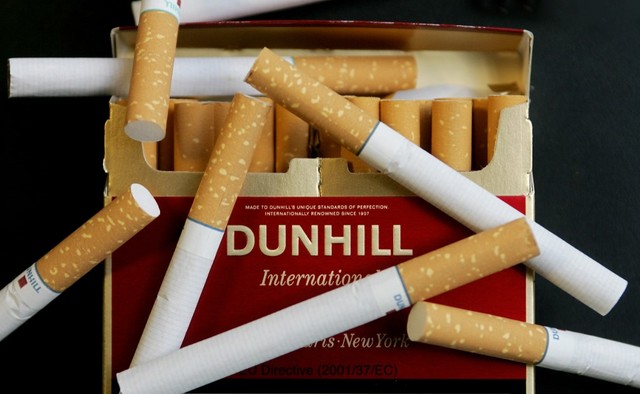British American Tobacco contests South African lockdown ban
British American Tobacco South Africa says a continued ban on legal cigarette sales threatens the sector and the livelihoods it supports
by Agence France-Presse
JOHANNESBURG, South Africa – British American Tobacco South Africa (BATSA) said on Friday, May 29, it was challenging the government's decision to extend a ban on tobacco sales when the rest of the economy reopens on June 1.
South Africa went into a strict nationwide lockdown on March 27 to curb the spread of the coronavirus, including a ban on cigarette and alcohol sales.
Last week, President Cyril Ramaphosa gave a green light for the economy to gradually reopen from June 1, including offsite consumption of alcohol, under strict controls.
Tobacco products remain banned however.
"Given the situation, and the lack of any response from the government despite our ongoing efforts to engage with them, we are now commencing urgent legal proceedings," BATSA head of external affairs Johnny Moloto said in a statement.
"We owe it to our consumers, customers, suppliers, and employees to do everything in our power to protect the legal tobacco trade in South Africa, and to get the prohibition of tobacco products lifted as a matter of urgency."
Though it had already threatened to sue the state, BATSA initially opted for talks with the South African government to overturn the ban.
BATSA, which covers 78% of the legal cigarette market in South Africa, said a continued ban on legal sales threatens the sector and the livelihoods it supports.
Supplying cigarettes through 50,000 outlets including grocery stores, liquor shops, informal traders, and fuel stations, BATSA reported paying 13 billion rands ($742 million) in taxes last year.
Its legal action has been backed by Japan Tobacco International and by groups and organizations representing consumers, retailers, and tobacco farmers, who agree that the ban is fueling an illicit cigarette market.
According to BATSA, the South African treasury is losing 35 million rands ($2 million) in excise taxes per day as a result.
South Africa was already in recession before the coronavirus struck in March and the economy is now forecast to contract by 7% in 2020. – Rappler.com